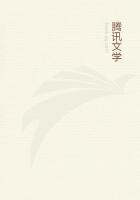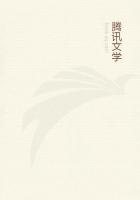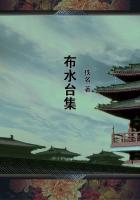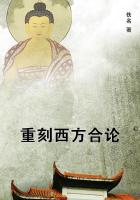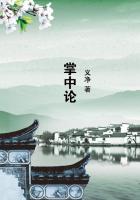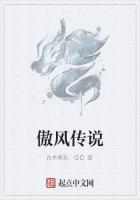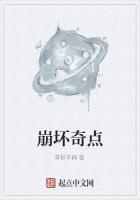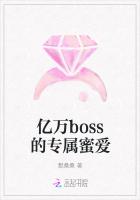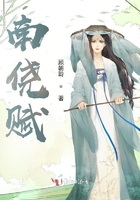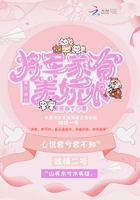The baker's cart, with the harsh music of its bells, had a pleasant effect on Clifford, because, as few things else did, it jingled the very dissonance of yore. One afternoon a scissor-grinder chanced to set his wheel a-going under the Pyncheon Elm, and just in front of the arched window. Children came running with their mothers' scissors, or the carving-knife, or the paternal razor, or anything else that lacked an edge (except, indeed, poor Clifford's wits), that the grinder might apply the article to his magic wheel, and give it back as good as new. Round went the busily revolving machinery, kept in motion by the scissor-grinder's foot, and wore away the hard steel against the hard stone, whence issued an intense and spiteful prolongation of a hiss as fierce as those emitted by Satan and his compeers in Pandemonium, though squeezed into smaller compass. It was an ugly, little, venomous serpent of a noise, as ever did petty violence to human ears. But Clifford listened with rapturous delight. The sound, however disagreeable, had very brisk life in it, and, together with the circle of curious children watching the revolutions of the wheel, appeared to give him a more vivid sense of active, bustling, and sunshiny existence than he had attained in almost any other way. Nevertheless, its charm lay chiefly in the past; for the scissor-grinder's wheel had hissed in his childish ears.
He sometimes made doleful complaint that there were no stage-coaches nowadays. And he asked in an injured tone what had become of all those old square-topped chaises, with wings sticking out on either side, that used to be drawn by a plough-horse, and driven by a farmer's wife and daughter, peddling whortle-berries and blackberries about the town.
Their disappearance made him doubt, he said, whether the berries had not left off growing in the broad pastures and along the shady country lanes.
But anything that appealed to the sense of beauty, in however humble a way, did not require to be recommended by these old associations. This was observable when one of those Italian boys (who are rather a modern feature of our streets) came along with his barrel-organ, and stopped under the wide and cool shadows of the elm. With his quick professional eye he took note of the two faces watching him from the arched window, and, opening his instrument, began to scatter its melodies abroad. He had a monkey on his shoulder, dressed in a Highland plaid; and, to complete the sum of splendid attractions wherewith he presented himself to the public, there was a company of little figures, whose sphere and habitation was in the mahogany case of his organ, and whose principle of life was the music which the Italian made it his business to grind out. In all their variety of occupation,--the cobbler, the blacksmith, the soldier, the lady with her fan, the toper with his bottle, the milkmaid sitting by her, cow--this fortunate little society might truly be said to enjoy a harmonious existence, and to make life literally a dance.
The Italian turned a crank; and, behold! every one of these small individuals started into the most curious vivacity. The cobbler wrought upon a shoe; the blacksmith hammered his iron, the soldier waved his glittering blade; the lady raised a tiny breeze with her fan; the jolly toper swigged lustily at his bottle; a scholar opened his book with eager thirst for knowledge, and turned his head to and fro along the page; the milkmaid energetically drained her cow; and a miser counted gold into his strong-box,--all at the same turning of a crank. Yes; and, moved by the self-same impulse, a lover saluted his mistress on her lips! Possibly some cynic, at once merry and bitter, had desired to signify, in this pantomimic scene, that we mortals, whatever our business or amusement,--however serious, however trifling, --all dance to one identical tune, and, in spite of our ridiculous activity, bring nothing finally to pass. For the most remarkable aspect of the affair was, that, at the cessation of the music, everybody was petrified at once, from the most extravagant life into a dead torpor. Neither was the cobbler's shoe finished, nor the blacksmith's iron shaped out; nor was there a drop less of brandy in the toper's bottle, nor a drop more of milk in the milkmaid's pail, nor one additional coin in the miser's strong-box, nor was the scholar a page deeper in his book. All were precisely in the same condition as before they made themselves so ridiculous by their haste to toil, to enjoy, to accumulate gold, and to become wise. Saddest of all, moreover, the lover was none the happier for the maiden's granted kiss! But, rather than swallow this last too acrid ingredient, we reject the whole moral of the show.
The monkey, meanwhile, with a thick tail curling out into preposterous prolixity from beneath his tartans, took his station at the Italian's feet. He turned a wrinkled and abominable little visage to every passer-by, and to the circle of children that soon gathered round, and to Hepzibah's shop-door, and upward to the arched window, whence Phoebe and Clifford were looking down.
Every moment, also, he took off his Highland bonnet, and performed a bow and scrape. Sometimes, moreover, he made personal application to individuals, holding out his small black palm, and otherwise plainly signifying his excessive desire for whatever filthy lucre might happen to be in anybody's pocket. The mean and low, yet strangely man-like expression of his wilted countenance;the prying and crafty glance, that showed him ready to gripe at every miserable advantage; his enormous tail (too enormous to be decently concealed under his gabardine), and the deviltry of nature which it betokened,--take this monkey just as he was, in short, and you could desire no better image of the Mammon of copper coin, symbolizing the grossest form of the love of money.

